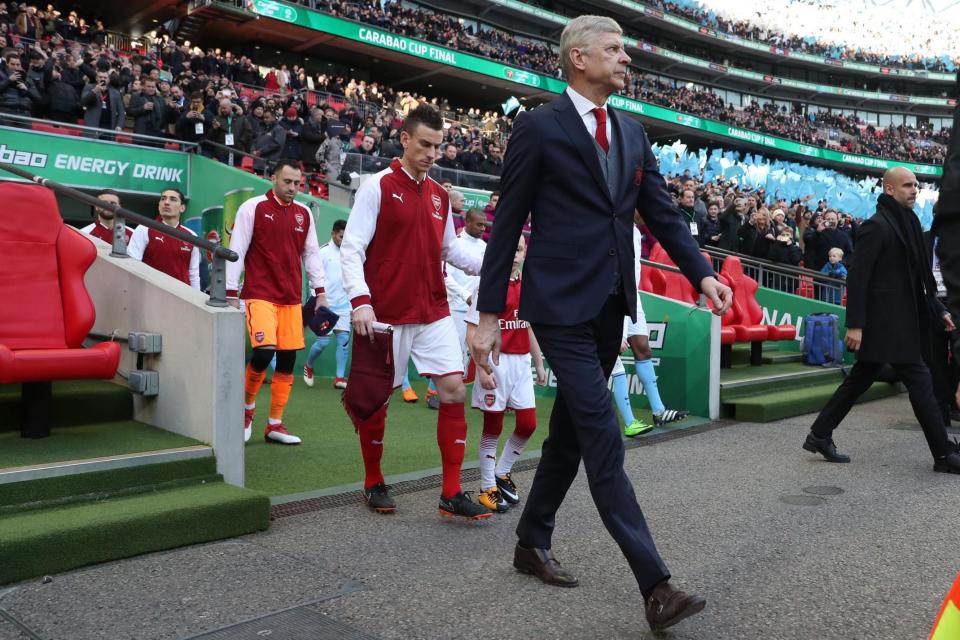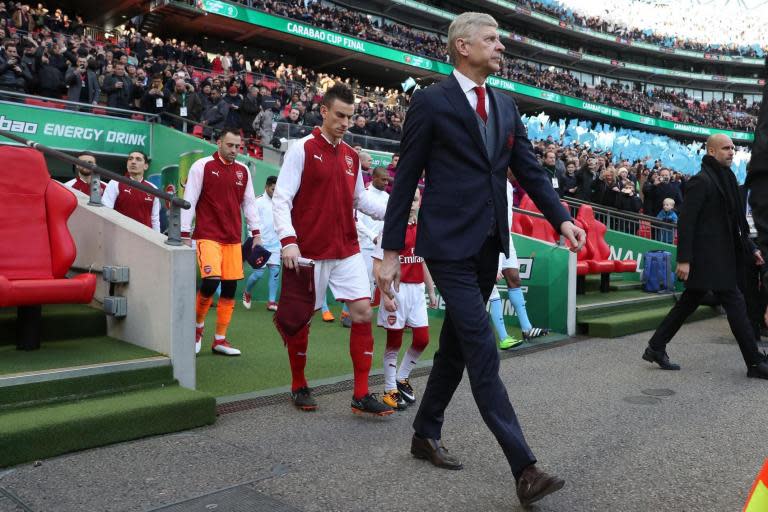Arsenal boss Arsene Wenger drops his guard as he comes out fighting following EFL Cup Final criticism
Part of Arsene Wenger’s charm is that he will answer virtually any question asked of him, even in difficult circumstances as these.
Pre-match press conferences such as these, where he has had time to compose himself and gather his thoughts, see Wenger at his erudite best, adept at the thrust and parry with reporters - often in multiple languages - while diffusing and disarming what can be highly-charged exchanges.
Not today. By the end, Wenger sat arms folded, legs crossed, evasive and laconic. He has been here many times before, facing questions over his future at Arsenal amid fevered criticism of his team.
There was the customary defence of his players, even against the charge of failing to give their all, as adeptly pointed out at Wembley by Gary Neville during his Sky Sports commentary. Granit Xhaka and Aaron Ramsey were singled out, failing to track back and defend as Arsenal laboured to defeat against Manchester City in the EFL Cup Final.
“Yes, but you could find that on both sides,” he told Standard Sport. “You can always get out pictures from a game that justifies what you think, you find in every single game, on both sides, moments where a player doesn’t track.
“After you have to analyse why, has he made two runs before to go in behind and was exhausted, or did he not track because he didn’t want to? That is different.
“I believe we have to live with that criticism and respond together like we always do. We got to the final and you don’t get there by coincidence, you have to fight to get there and we did.
“We didn’t play against a poor team in the semi-final, we played against Chelsea and we have shown we can fight. You have to acknowledge as well that Man City are a quality team.”
It would be remiss to take anything said at a press conference solely at face value but it was more what Wenger did not say that was of interest. Wenger offered up, unprompted, at October’s AGM that there would be a review of his position at the end of the season. A series of backroom appointments followed as the club instigated an infrastructure overhaul and the inference was clear: Wenger was no longer solely determining the timing of his own departure.
It is unclear whether Wenger, whose side face Manchester City at Emirates Stadium on Thursday night, has been set specific targets but a second season without Champions League football would pose the club difficult financial questions in addition to growing the fan opprobrium towards Wenger which already exists.
Asked specifically to clarify whether his position next season depends on securing a top-four finish or winning the Europa League, Wenger said: “I don’t want to come out always on that, I have answered that already.
“Yes, I answered that question. Our target is to qualify for the top four, of course.”
He had not answered that question. A glance towards his accompanying press officer followed.
Pushed on whether he was under pressure to deliver Champions League football, he said: “What I want is for us to focus in a united way and respond tomorrow with a good game and win the game.”
Inconclusive, to say the least. In his defence, any manager would find it difficult to put a positive public spin on a team that have lost six times since the turn of the year and find themselves 10 points off the top four ahead of what is potentially another awkward evening against the runaway League leaders at Emirates Stadium.
“I am long enough in the game to know that when you lose a big game, people always say that the players don’t want it enough - that is a common response that you get,” he said.
“You have to analyse whether that is the serious problem in the game, did we lose the game because of that - I am not convinced.”
His players have to answer those questions now.

 Yahoo Sport
Yahoo Sport 







































